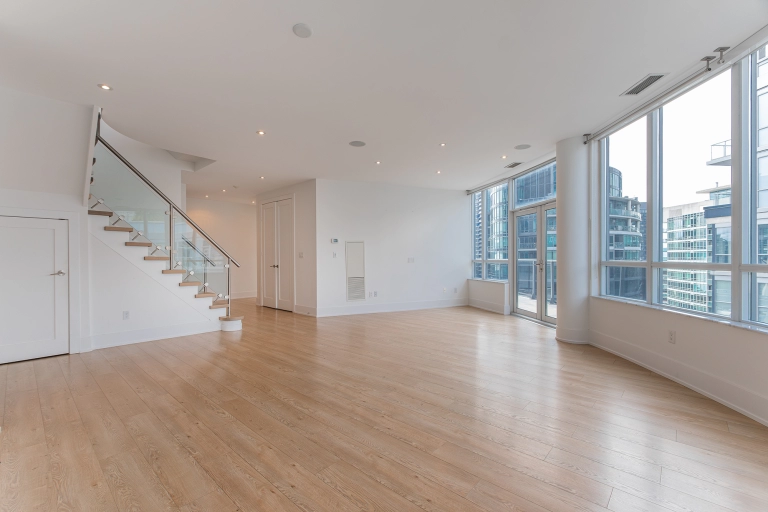Are you a landlord seeking to maintain a harmonious relationship with your tenants while ensuring your rental property remains occupied by reliable, long-term occupants? Look no further! In this comprehensive guide, we’ll delve into the essential strategies for tenant retention, tailored specifically for the bustling Toronto rental market.
Picture this: You’ve just secured fantastic tenants for your rental property—responsible, punctual with rent, and treating your investment as their own. Now, imagine the relief of knowing they’re not just passing through but committed to staying for the long haul. Sounds like a landlord’s dream, right? Well, it doesn’t have to be a fantasy. With the right approach to tenant retention, you can transform this dream into a tangible reality.
In the competitive landscape of Toronto’s rental market, retaining top-tier tenants isn’t merely advantageous; it’s essential for your financial success and peace of mind as a landlord. High turnover rates not only incur significant expenses but also disrupt your cash flow and property’s stability. So, how can you ensure your tenants choose to stay in your rental property, year after year? You do it with a solid tenant retention strategy.
As a rental agent in Toronto, I’ve learned from first-hand experience the answers behind tenant retention and I want to share with you actionable strategies to foster positive landlord-tenant relationships, mitigate turnover risks, and ultimately, maximize the profitability of your rental property. Whether you’re a seasoned real estate professional or a novice landlord navigating Toronto’s dynamic market, the insights shared here will empower you to cultivate a loyal tenant base and unlock the full potential of your investment.
Let’s get started!
What Does Tenant Retention Mean?

Before we dive into the nitty-gritty of strategies and techniques, let’s ensure we’re all on the same page regarding what tenant retention is.
Tenant retention refers to the landlord’s ability to keep existing tenants satisfied and motivated to continue their lease agreements for an extended period. Essentially, it’s about fostering an environment where tenants feel valued, comfortable, and eager to remain in your rental property and continue with lease renewals.
In a fast-paced rental market like Toronto’s, where vacancies can arise at any moment, tenant retention is more than just a buzzword—it’s a cornerstone of success for landlords. Why? Because each turnover comes with its own set of challenges and expenses, from advertising and screening new tenants to potential periods of vacancy and property maintenance between tenancies. By prioritizing tenant retention, you as a landlord can minimize these disruptions, stabilize your rental income, and build long-term relationships with reliable occupants.
Why Do Tenants & Renters Move?

The reasons why tenants move can be categorized into two categories. The first category are for reasons beyond the landlord’s control. This can include:
Job relocation
Adjustments to their lifestyle – needing to upsize or downsize
Changes in financial circumstances
No matter how good of a landlord you are, the tenant will likely move. However, there are instances where the landlord can be to blame. These include the following:
Maintenance issues
One of the primary responsibilities of a landlord is to ensure the proper maintenance and upkeep of the rental property. Failure to address maintenance issues promptly or adequately can lead to tenant dissatisfaction and frustration. Persistent problems with plumbing, heating, or pest control, for example, can make the living environment uncomfortable and inconvenient for tenants, prompting them to seek alternative housing options.
Poor communication and responsiveness
Effective communication between landlords and tenants is essential for fostering a positive rental experience. Landlords who are unresponsive to tenant inquiries, requests, or concerns may create feelings of neglect and frustration among their tenants. Whether it’s addressing maintenance issues, clarifying lease terms, or resolving disputes, prompt and transparent communication can help build trust and loyalty with tenants.
Significant rent increases without justification
While it’s understandable for landlords to adjust rental rates periodically to account for market conditions or property improvements, arbitrary or excessive rent increases can alienate tenants and prompt them to explore more affordable housing options. Even though landlords in Ontario can increase the rent by as much as they want if the building was first used for residential purposes post-November 15, 2018, doesn’t mean you should squeeze out every penny. I’ve helped more than a handful of tenants relocate within Toronto because their landlord increased the rent by a significant amount. The kicker is, market rents in the local market did not align with their increase! So my tenant client was able to secure a similar unit for much less than what the increase was.
Tenants value transparency and fairness when it comes to rental pricing, so landlords should justify any rent increases with tangible improvements or market considerations.
Lack of amenities or upgrades
In a competitive rental market like Toronto, tenants are often attracted to properties that offer desirable amenities and modern upgrades. Landlords who fail to invest in their properties or neglect to provide amenities that enhance the tenant’s quality of life may struggle to retain tenants over the long term. Upgrading appliances, renovating common areas, or adding sought-after amenities like laundry facilities or parking spaces can increase tenant satisfaction and loyalty.
Inflexible or even illegal lease terms
Lease terms that are overly rigid or restrictive can also contribute to tenant turnover. For example, landlords who enforce strict pet policies, prohibit subleasing, or impose onerous lease renewal conditions may deter tenants from continuing with their leases or discourage prospective tenants from renting the property in the first place. Tenant retention begins with flexibility and accommodation. Flexibility and accomodation of tenants’ needs can go a long way in fostering positive landlord-tenant relationships and promoting tenant retention.
6 Ways To Reduce Tenant Turnover & Increase Tenant Retention Rates

Reducing turnover and increasing tenant retention rates are crucial for landlords and property owners as they lead to stable rental income and lower costs associated with finding new tenants. Here are several effective strategies when it comes to retaining tenants:
1. Timely responses to maintenance requests
Responding promptly to maintenance requests is essential for tenant satisfaction and retention. Quick fixes prevent minor issues from becoming major problems. This shows tenants that their comfort and well-being are a priority.
2. Hiring property managers
Professional property managers bring expertise in handling tenant relations, property upkeep, and administrative tasks. A property manager can ensure that tenant issues are addressed efficiently, contributing to a smooth and pleasant living experience.
3. Offer competitive rental rates
Just in the last month, I helped a tenant relocate to another condo in Toronto because they felt they were not getting the right value for what they were paying. Offering rental rates that are competitive with similar properties in the area attracts and retains tenants. Fair pricing provides tenants with value for their money, reducing turnover and increasing your tenant retention rate.
4. Build a sense of community
Creating a sense of community through events, communication, and shared spaces enhances tenant satisfaction. A strong community feeling encourages tenants to build relationships and feel more connected to their living environment, promoting longer stays.
5. Enhance security and safety
Enhancing security and safety measures in your buildings reassures tenants about their well-being and the protection of their belongings. Implementing security protocols and maintaining a safe environment in your rental properties are critical factors in tenant retention.
6. Incentives and rewards
Incentives and rewards can be powerful tools for increasing tenant retention by adding value and fostering a positive relationship between property owners and tenants.
First off, lease renewal incentives are great. Offering a discount on rent for tenants who renew their lease for another term encourages them to commit to staying longer. This not only benefits the tenant financially but also reduces turnover for the landlord.
Providing thoughtful gifts or seasonal treats to tenants during holidays or special occasions demonstrates appreciation and strengthens the landlord-tenant bond. Most investors tend to view their rental business strictly through the non-emotional lens of business. However, those with good tenant retention strategies understand the human element of property management. Treating your current tenants with respect is how you keep tenants happy. They are people – not cogs in your business.
How To Find Great Tenants

Finding great tenants requires a strategic approach that begins with crafting a detailed and enticing rental listing that highlights not just the property’s features but also the lifestyle benefits of living there.
Conduct thorough background checks to verify rental history. Contact previous landlords of other rental properties and see if they are willing to speak about their experience dealing with the prospective tenant. Did they make rent payments on time? Were they respectful of the property owner? These are all key questions you should ask when connecting with a past landlord. Finding great tenants in Toronto can feel like a full-time job which is why landlords often hire real estate agents to help with the process.
For landlords in Toronto aiming for stable, long-term tenants, consider collaborating with a seasoned Toronto real estate professional like Marco Pedri – real estate broker with Shoreline Realty Corp., Brokerage who can streamline the process. I leverage my local expertise and network to attract and vet tenants who are not only suitable but also likely to stay for an extended period. Working with an agent who understands the nuances of Toronto’s rental market can significantly increase the chances of finding tenants who will treat your property with care and respect.
Final Thoughts On How To Keep Tenants Long-Term

Achieving long-term tenant retention hinges on proactive management and fostering a positive rental experience.
Beyond providing well-maintained properties and responsive service, cultivating a sense of community through regular communication and shared activities can significantly enhance the tenant experience.
Offering flexible lease options and fair rental rates also demonstrates a commitment to accommodating tenants’ needs and fostering loyalty. Moreover, investing in property upgrades, regular maintenance, and security measures not only improves the living environment but also reassures tenants of their safety and comfort.
If you take tenant feedback seriously and have a team that can act on the feedback like a property manager or a property management company, you will find that retaining tenants can be easy which reduces turnover costs and generates consistent income.
By implementing these strategies consistently and engaging with tenants on a personal level, landlords can establish strong relationships that encourage tenants to renew leases and recommend the property to others through positive word of mouth.
Partnering with knowledgeable real estate professionals like Marco Pedri who have proven strategies in Toronto can further enhance these efforts, ensuring landlords have the support and expertise needed to maintain high tenant retention rates.


